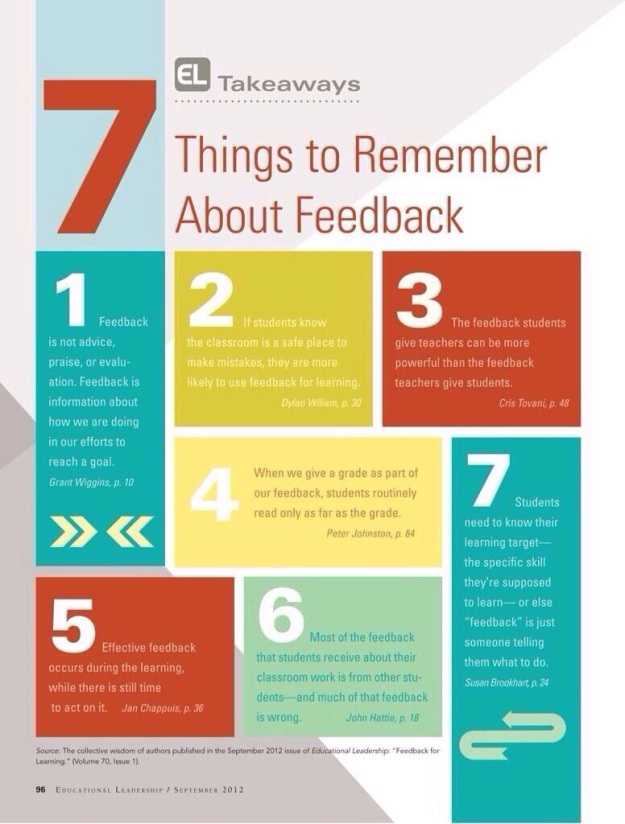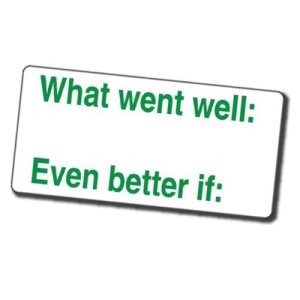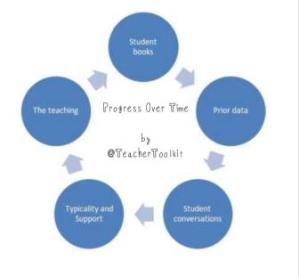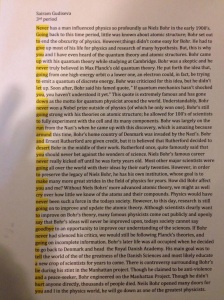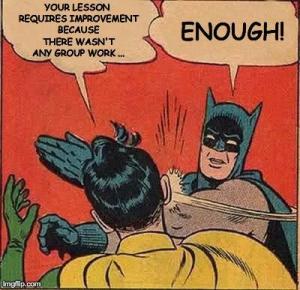Author Archives: ebor7
‘Up to the highest height’
“Winds in the east / Mist coming in / Like something is brewing / About to begin / Can’t put me finger / On what lies in store / But I feel what’s to happen / All happened before.”
How to be ‘practically perfect’
My advice would be to make sure that we all have a week’s break but if you do need to catch up with your marking the second week is the time to do this.
Then…
Please remember that we are committed to using the yellow stickers, www and ebi comments and the whole school literacy annotations. This is not an option.
We should also be using green pens for student responses to feedback.
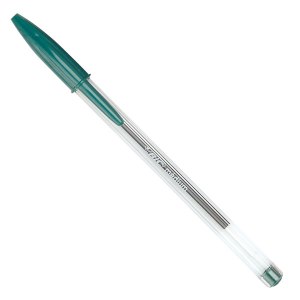 This is still an area that requires improvement. I am confident that our feedback is improving but not so confident that students are acting on feedback effectively.
This is still an area that requires improvement. I am confident that our feedback is improving but not so confident that students are acting on feedback effectively.
One question from the inspection which keeps coming back to haunt me “If your teacher’s feedback is so good why aren’t you making more progress?”
Remember when marking to resist the temptation of over correcting work. The students need to work problems out for themselves. Our present Year 8 will be the first year to sit the new GCSE exams where 20% of their mark will come from SPAG.
To be blunt there is little point in spending hours on marking books if students are not using the feedback to improve and make progress. We must show evidence of interaction. If you pose a question how do you ensure that it has been answered?
Remember to provide time in lessons and check their responses. I have started using a star stamp every time there is a particularly good example.
We must ensure that our books and folders provide evidence of progress over time. This cannot be achieved if we are not marking regularly over time. I aim to look at books fortnightly – this does not mean that I write lengthy comments every fortnight!
Many of us have split classes. I have found that regular feedback with these classes has really helped my relationships. The tricky issue is whether we share books or have separate books. I think that it should be easier to demonstrate progress with one book but this creates problems when needing to collect in books to mark. Perhaps those of us with split classes need to take time to self/peer assess each other’s marking so that the students are not receiving mixed and confusing messages.
Specific Guidance from EEF (Education Endowment Foundation) on Feedback
- Be specific, accurate and clear
- Compare what a student is doing right now with what they were doing wrong before
- Encourage and support further effort
- Give sparingly – too much stops students from working out what they need to do for themselves
- Provide specific guidance on how to improve.
Remember:
Snigger Oat Post
Helping students – and dragons – spot success.
Guest post by SLo.
Seven detentions, for one class? Really? Seven, out of 25 erstwhile stellar handers-in of homework? What on earth gave, last Friday?
My students’ homework task had been to write a limerick. This was something we’d peered at together under a step by inching-step microscope, carefully examining curious, didactic rhymes and rhythms. Then I’d modelled how to do it, by mutual consent avoiding experimenting with the funniest-scanning names in class; then small groups had tried piecing one together and, finally, individuals had almost all successfully written their own first version during lesson time, with much peer and teacher critique and support: thus, writing an improved version at home hadn’t seemed an impossible task. I’d also given them a pretty leisurely five days to do their darndest and even suggested specific poetic subjects for those who needed it.
So, why the poor return? Worried that my instructions hadn’t been clear enough, I conducted a hurried straw poll: it turned out that half of the culprits thought their work “wasn’t good enough” to hand in. One told me: “I spent ages on it and I was trying so hard to make it swag (year 7 parlance for ‘excellent’), but it just turned out looking terrible”.
I am letting students down if they think they need to turn in perfection, first time, every week, if they mistakenly think that their best efforts aren’t good enough pieces of homework, if they don’t twig that one of the raison d’êtres of homework is to receive constructive criticism on their work from different, trusted sources, to self-evaluate their success so far (yes, of course, complete with EBIs of varying urgency) and then, triumphantly, to improve on the original.
As a class, we had a chat. I pointed out that although we all strive to improve our skills and increase knowledge, their completed homework is a bona fide success, whatever level is gained or comment garnered on what needs to be done next. Handing in work-in-progress, which even summative-style homework surely is, is an act of bravery: ‘look’, say the displays of newly-acquired persuasive techniques or skills of comparison, ‘I have been listening. In every sense, Mrs. L, Mark My Words’.
I shared thoughts on my detention epidemic with an SBL colleague … and she told me the same has been happening with her class; further, that some students have struggled to take formative advice for improvement as the positive guidance it certainly is. She told me: “They seem to think that what they hand in has to be perfect”.
Here’s a simile and a half: SBL students are like Smaug (complete with searing, dragony glare every time you ask them to do anything that doesn’t involve iPads), balancing on a hoard of unused, as-yet unpolished treasure but with with an undercarriage unwittingly studded with diamonds….the point is this: our most challenging students all have untapped potential they’re sitting on without realising it. It’s my job to point out the diamonds they have already absorbed and how these just need a wee bit of polishing – in other words, improving on the great success that is laboured-over, handed-in-on-time homework.
WBD
World Book Day is this Thursday.
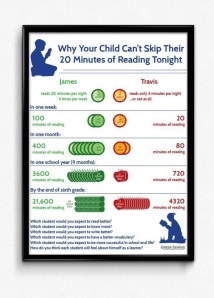 Here’s a Slocombe shelfie which I am going to share with 8E and encourage them to bring in photos of their own book shelves from home.
Here’s a Slocombe shelfie which I am going to share with 8E and encourage them to bring in photos of their own book shelves from home.
I am also looking forward to the live Muchamore (T’s absolute literary hero – you may have been lucky enough to meet him when he came to SBL) http://p5tre.emv3.com/LP/Zl3YEgcnP8R
Do remember to give out the book tokens and take part in the book clue competition being run by the OLC. I may wear a shark fin badge and drink from this…
Perhaps not.
There is also a book swap table being set up in the Staff Room. I have a pile waiting at the bottom of the stairs.
Finally – this is not new and has nothing to do with WBD. It is very, very, clever.
‘The biology of courage’

What we learned:
- Our marking is good
- The importance of students using green pens to highlight their responses to our feedback
- Students need to learn something new in a lesson
- Difficulties of accessing information for gifted and talented students
- That observation is about the students and their history not about me
- Praise really helps
- The importance of showing progress
- To relax during observations
What we are going to get better at:
- Differentiation at post 16 – differentiation full stop
- ‘Tough Love’
- Enabling students to take responsibility
- ‘Letting go’ with P16
- Transferring good practice from JA to all classes
- Including pastoral details when lesson planning
- Consistency is the key – importance of embedded routines for teachers and students
- Structures and planning around the students
- Setting clear learning goals
- Checking that extension tasks are challenging higher ability students
If you’re too busy – ‘stressed’ to listen to it all:
“Caring created resilience. And so we see once again that the harmful effects of stress on your health are not inevitable. How you think and how you act can transform your experience of stress. When you choose to view your stress response as helpful, you create the biology of courage. And when you choose to connect with others under stress, you can create resilience. Now I wouldn’t necessarily ask for more stressful experiences in my life, but this science has given me a whole new appreciation for stress. Stress gives us access to our hearts. The compassionate heart that finds joy and meaning in connecting with others, and yes, your pounding physical heart, working so hard to give you strength and energy, and when you choose to view stress in this way, you’re not just getting better at stress, you’re actually making a pretty profound statement. You’re saying that you can trust yourself to handle life’s challenges, and you’re remembering that you don’t have to face them alone.”
Happy Holidays!
Clairex
‘Take That’
Bet that wasn’t what you were expecting!
Thank you for this week. Am proud of our True Grit.
I learned a lot this week.
I learned that you are the best team of people to work with. The only team I want to work with. (Think I already knew this but…)
I learned that we are making progress with our marking and how essential it is that we continue to move forward on this.
I learned that our feedback is becoming more and more effective but that we still need to make sure that our students are responding and acting on that feedback. WWW and EBI should now be embedded across the team and C and I will continue to monitor this through our fortnightly work scrutinies. Please remember that you are very welcome to attend these sessions. The next one will be the first Tuesday after Half Term – Year 11 focus.
I learned that we need to practise ‘tough love’ on those students that are not making progress.
How many phone calls have we made this year?
How many emails have we sent?
How many after school sessions have students attended?
Are we insisting on excellence or are we sometimes guilty of settling for almost theres?
I understand that there are no overnight successes or quick fit fixes and that consistency across the team and school has to be the key.
We need to take a long hard look at our progress and think about how to raise achievement for all for always.
It is all about the learning and not the teaching. We know we can teach.
I have lost my fear.
P.S. English Subject Review time – ‘Go for it!’
Week ‘Fourtitude’
A big thank you for moderating this week. The folders are in E7 – in hiding under my desk. As always there are still folders to check. You may take away any folders that have been moderated. If you have completely finished with them I am sure that Kellie will lock them away for you for safekeeping. There is still time to resit controlled assessments if you are convinced/confident it will make a difference. If there are any folders that you are worried about please share.
I will need you to update the tracker to give us a clear picture on the students’ progress.
English Subject Review starts next week.
Good luck everyone. Remember the focus is on the students and their learning not your ‘performance’.
Here’s some interesting advice on observations from Kristian Still from Wellington Academy following their recent inspection:
- Teach to the top – have high expectations
- Questioning – probe, dig, challenge
- Do not use one resource for the whole class
- Model or share with the class what you expect to see
- Address homework – has it been set? Marked? Used to promote progress?
Typical questions for individual students:
- What are you learning today?
- How are you learning today?
- Why is it important to know…
- What grade are you working at?
- What grade are you striving for?
- How are you going to get there?
- Is today’s lesson, a typical lesson?
- Is this lesson challenging?
Paperwork
Have your data to hand – does it show progress?
Annotated seating plan
Photographs
SEN information
Lesson plan – I know this is now optional but it certainly makes me feel safer and more prepared having one! However, don’t fall into the trap of over-planning and trying to include too many activities. I am guilty of this when feeling nervous.
Marking and Feedback
Are your books up to date?.
Do they show evidence of you beginning to use WWW and EBI?
Is there lots of green pen to indicate student response.
Presentation (Environment and Books)
We now have a rota for keeping on top of the tidiness of The Hub. Help each other.
Try to have spare just in case pens etc. Consider the impression the presentation of books and folders creates.
Basically we need to embed routines in every lesson – our review is a great opportunity to rehearse.
Here’s the timetable for observations – make a note of when and where. Try to avoid interruptions during these times and just watch out for each other.
“It’s not enough to be friendly. You have to be a friend.”
Student Voice
I have written a questionnaire for Year 9 on Feedback – which I will give you next week. Please ask students to complete in class and then return to me. I think they’ll make interesting reading.
| Date | Period | To observe | Observer |
| B Tuesday 4th Feb | 4 | MDa Yr 9 | DCl |
| B Wednesday 5th Feb | 1 | MNe Yr 9 | SSa |
| B Wednesday 5th Feb | 2 | KBl Yr 9 | MAn |
| B Thursday 6th Feb | 3 | STa Yr 9 | SSa |
| B Friday 7th Feb | 2 | RUr Yr 9 | MAn |
| A Monday 10th Feb | 1 | SLo Yr 7 | CJo |
| A Monday 10th Feb | 2 | SSa Yr 7 | SHi |
| A Tuesday 11th Feb | 1 | CMa Yr 10 | DCl |
| A Tuesday 11th Feb | 2 | HHa Yr 10 | THa |
| A Tuesday 5th Feb | 5 | DAn Yr 9 | RPr |
| A Wednesday 12th Feb | 4 | JRo Yr 10 | LTi |
| A Thursday 13th Feb | 2 | CSl Yr 9 | SHi |
This was sent to LG recently and I thought it might be useful when planning
The following points about teaching have been taken from the December 2013 Review.
- Planning did not always take into account the needs of students of different ability levels – work was often pitched at a broadly average level
- In some lessons, insufficient demands were placed on pupils and consequently, planning needs to introduce more challenge
- Where progress is not checked while students are working “drift” resulted and a lack of urgency was noted
Areas to focus on include:
- Ensuring learning is planned on the basis of students’ prior achievement and targets to match their needs more effectively
- Providing sufficient challenge to students of all abilities
- Clarity about what students will know, understand and be able to do / do better, by the end of each and every lesson
- Planning activities to lead to the intended learning outcomes and including opportunities for independent learning
- Frequent monitoring of student progress to move them on more rapidly to the next stage in their learning.
‘Our world is fine.’
What an extraordinary first week back. We have had three brand new teachers starting, 2 new intervention groups starting and 1 brand new Year 7 group starting. We have also had a run of ‘bad luck’ (understatement) for individuals in the team who have coped with and are coping with this magnificently.
I have bombarded you with emails demanding information on SEN, homework, work scrutinies, progress checks, names of underachieving Year 11s and Year 10s. Some of you are about to mark Year 12 and 13 exams and we’re also hurtling towards Year 11 controlled assessment moderation.
Oh and I think there’s a subject review coming up!!! Oh and ‘a visit’ on the horizon.
Throughout this we are still laughing – perhaps a bit hysterically at times! – and even more importantly being kind.
This made me smile on Friday night:
A small animal walks into a bar and asks for a drink. The barman says “You’ll have to speak up.”
“I’m a little hoarse.”
This from John Tomsett gave me a lump in my throat: – putting your family first
And I just like this ‘The Ocean’ Richard Hawley
Have a great weekend and am looking forward to another week of …whateverness.
Clairex
Happy 2014!
You may have been reading the #nurture1314 collections on twitter and so here’s my attempt of 13 magic moments and 14 hopes. I’m going to use this idea with my Year 8 as a way of reviewing the year and looking to the future.
I also love this idea but may wait until September and then look back at any bright spots in the following July.
Here goes and in no particular order!!
Looking back on 2013
- I’s face when she saw that we had bought her Taylor Swift tickets.
- T’s exam results.
- Holidays to Sennen, Croyde, Porthgain, Torcross and Menorca – connection is the sea.
- Visit to High Tech High – witnessing the incredible warmth between teachers, students and families. They just like each other.
- My Year 8 TG. Perhaps we just like each other.
- Teaching PBL to my Year 8 TG. Feeling ‘teary’ when reading their ‘excellent’ work.
- The power of wordpress – 3 uploads from Year 8 on Christmas Eve!!!!!
- Watching ‘Sunshine on Leith’, ‘The Way, Way Back’ and a lot of superheroes.
- Friends – three highlights – drinks in ‘The Old Success Inn’, annual trip to Malvern pantomime and catching up with a university friend in Bristol after 8 years.
- My love affair with technology continues – kindle, apple tv and my first mobile phone!
- Reading – Maggie O’Farrell’s ‘Instructions for a Heatwave’, Palacio’s ‘Wonder’, Gaiman’s ‘The Ocean at the End of the Lane’ and Mick Waters’ ‘Thinking Allowed’.
- Unpacking the last boxes in ‘The Hub’ and having a cup of tea and a biscuit to celebrate with you.
- Being forced out of my comfort zone to speak – you know what I mean.
Looking forward to 2014
- Finding more thinking time – this may mean less reading as I tend to use books to escape and mean less time on twitter. I successfully banned myself from twitter during the week last term and I must continue to do so. Am a bit concerned that the new phone makes it all a bit too easy.
- Working on the classroom environment. So many ideas that I never get round to starting. I must find ways of handing this over to students. We have been given the OK to display in The Hub but we must ensure its ‘excellence’.
- Exhibition – building in opportunities for parents to see what their children are creating.
- Building on our work on feedback and critique and finding ways of ensuring students regularly respond to our comments. Got a WWW EBI stamp for Christmas.
- Surviving Ofsted.
- Cooking properly once a week. Not sure if I really am looking forward to this but I need to show the family that I’m not just a marking machine.
- More holidays involving the sea
- Seeing friends – I neglected all my friends in 2013 and they have been remarkably understanding. Well I think they have perhaps they haven’t but I just haven’t seen enough of them to realise.
- Building in family time at the weekend – even if T and I want to be left alone.
- Going to York in February – haven’t been North for 18 months.
- Return to writing ‘A Bigger Boat’. This was weekly – then fortnightly and now it’s monthly.
- Becoming more organised and remember to file things. Will need to buy some files first. Good excuse for a stationeryfest.
- Use my office at school effectively; need to get over the weirdness of having one.
- Contradicts 1. Sometimes I think I spend too much time thinking when I should be ‘acting’ or ‘actioning’
Now off to work on 6. (Toad in the hole) Picture to follow?
“Next year all our troubles will…”
Catch-up Time
I thought I’d post some of the emails that I have been sending out so that you know they’re all in one place. I seem to lose track of emails after a while. Yes I know I should create folders etc.
1. Education Consultant (Apologies for my frequent use of she but I don’t feel that I can use names.)
We have had our first visit. Here are my informal notes that I sent round in an email.
‘The most important questions when planning are ‘How is the lesson building the progress?’ and then when thinking about observations ‘Is it obvious?’ Can your students articulate their learning and can they explain the difference between doing and learning?
She was very clear that observations focus on the students not the teacher and that judgements are based on students’ learning and progress. Students are likely to be asked ‘What are you learning?’ I welcome this as it means that gone are the days of feeling that you need to ‘put on a show’ during that 1 hour.
The interesting question that she asked me was ‘What is the impact of teaching over time?’ It is the ‘over time’ that is fundamental.
Feedback is an obvious indicator of progress over time. I know that we have made progress with the way that we use feedback but during Jane’s scrutiny she saw that as a department our feedback is inconsistent and so we still need to work on this together.
Interestingly she had some concerns about the lack of extended writing in Year 9. We need to move to using the exercise book for all stages of the writing process. If you have Year 9 on Monday make sure that their APP folders are on the desk as well.
If you are marking books/work over the weekend remember to build in time at the beginning of the next lesson for students to respond to the feedback explicitly. Give them opportunities to demonstrate that they have understood your suggestions for improvement.’
She is going to be with us again this Friday afternoon and will focus on the recent Year 11 mocks and analyse a sample of papers from our more able students. She has also sent me a written report, which I will upload, to the ‘All About Us’ section.
2. I am going to start regular work scrutinies on those Tuesdays that I do not attend LG. This starts this Tuesday with Year 7. The next scrutiny will focus on Year 9 and will be on the first Tuesday after the Christmas holidays. Please bring your books to The Hub straight after school. I will not take the books home and you can collect them first thing the following morning. I would love other members of the team to look through books too so that these sessions developed a workshop feel. We can all learn from each other.
3. A reminder that the deadline for controlled assessments is the end of this term. Please make sure that the tracker is kept up to date. I will be asking for a print out from J K so that we know the percentage of students
on TG for this component. We will be moderating folders at the end of January/beginning of February.
4. Thank you again for your hard work in marking the Year 11 Mocks. Please remember to enter the marks on the tracker for Monday – K will need to know if there are any problems with this, as she needs to collate the marks for Thursday. I also need your analysis of your class. We will spend some time in our next CT meeting to discuss the exams.
5. Looking forward to night out next Wednesday – 18th?
“Next year all our troubles will be miles away.”
Love
C

